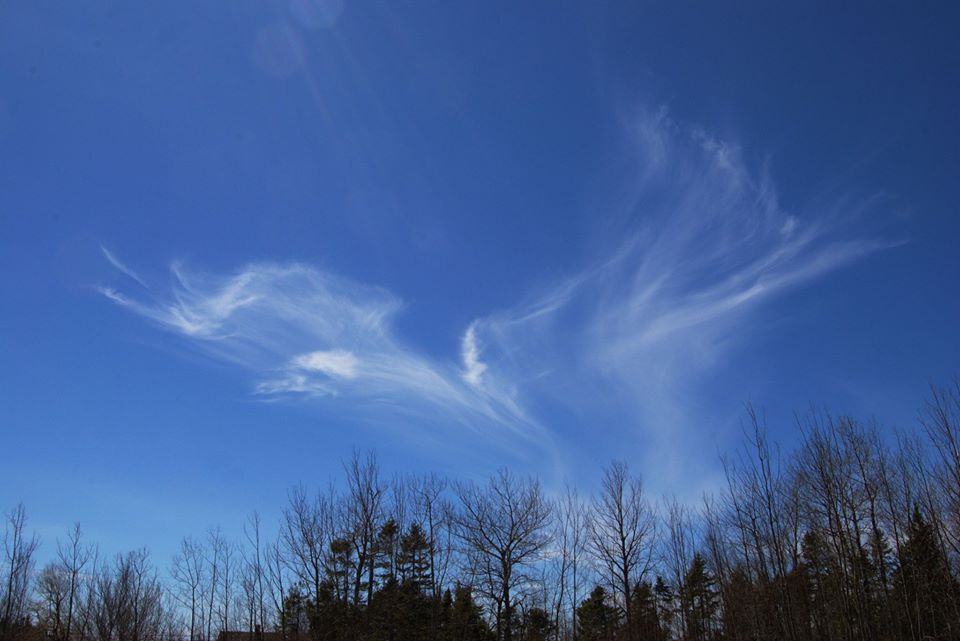I was sitting on a bench swing down by our pond the other day. It’s a favourite place to read and watch the dragonflies practice their aerial ballets. Sometimes one will land on my leg or shoulder while I’m reading. Or on my book, and then I’m stuck on that page until the ballet resumes.
I didn’t have any dragonfly visitors this day, but a strange scritchy sound caught my ear. It was coming from a thick patch of tall, hay-like grass at one end of the pond. I looked over, squinting against the sun, and noticed a single blade of hay waving quickly back and forth like a metronome. Then it stilled. And suddenly shrank by three inches.
I blinked, wondering if I was seeing things. Then the piece of hay shrank again. In a series of sudden downward jerks about two seconds apart, the hay dropped lower and lower until I could no longer see it among the other blades.
I smiled to myself and thought, we have a muskrat.
We’ve shared our pond with muskrats on and off for several years. They come and go with little fanfare. Months, even years can pass without any sightings, then one day we’ll spot one swimming across the pond or wandering around the grass near the banks. One summer we had a whole family including four babies. The young’uns had great fun rambling around the lower part of our yard near the pond. It was entertaining to watch them, although we didn’t get much use of that half of our property that season. We didn’t dare get to close and be confronted by an angry mama or papa. Most of our interactions have been during spring, summer, or fall, but one winter we found muskrat tracks in the snow near the house after an inhabitant had emerged from its burrow in the bank of the pond to scrounge around for food.

I wasn’t able to catch a glimpse of our newest pond tenant. It was well hidden at the base of the tall grass and hay. The only clue to its presence was the mysteriously shrinking pieces of hay as it sheared them off at the base and nibbled them from the bottom up.
Over the years the pond has also hosted an assortment of wild ducks and, on a few occasions, American bitterns. They stop in for a swim, a bath, a bite to eat, then go on their way. We keep binoculars within easy reach in the kitchen for such occasions.
One day in the summer of 2014 I noticed an unusual buff-coloured duck swimming in the pond. I’d never seen one like it before, so I emailed a photo to a local bird enthusiast. He quickly identified it as a juvenile female hooded merganser. She was a spunky little thing, not bothered by my presence as I watched her. I named her Flavia, after Flavia de Luce, the preteen amateur detective and scientist in Alan Bradley’s mystery novels. After a short visit, Flavia went on her way. The following year she returned with a mate (whom I dubbed Hercule for Agatha Christie’s fastidious detective, Hercule Poirot). Flavia and Hercule have stopped by our pond for a brief visit every year since.

The inclination to name the wildlife dates back to when our son was a preschooler. He dubbed a squirrel that was raiding the bird feeders Speedy. For several years, every squirrel on the property was, by default, Speedy (Have you ever tried telling squirrels apart?). Although I did break from tradition and start referring to one particularly inquisitive squirrel as Clara, an allusion to one of the characters in my favourite literary world of Three Pines. The chickadees are all affectionately known as Little Dee. A trio of crows that used to get up to antics on the back deck were The Band of Brothers.
Even the duck decoy in the pond has a name: Darwin. My husband came up with that one. Come to think of it, we haven’t seen any sign of Darwin in recent months. Maybe he’s hanging out in the tall grass with the muskrat.
